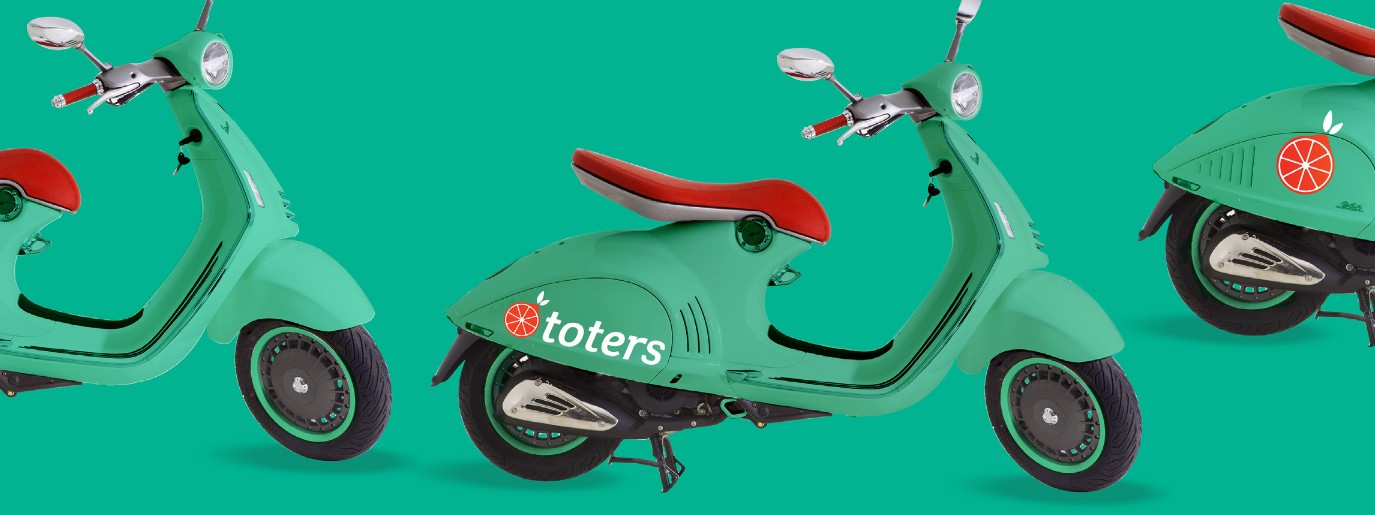
by arabnews — RIYADH: Lebanese-based super app Toters raised $15 million in a series B funding round from International Finance Corporation, March Holding, and B&Y Ventures. The company began as a food delivery platform before transforming into a super app that offers several services including payment and financial transactions. Toters will use its newly acquired funds to strengthen its presence in current markets as well as expand its operations in Iraq, according to Wamda.
by restofworld — Amim Khalfa co-founded Toters in 2017. The Beirut-based delivery startup delivers groceries, food, and convenience products for more than 2,000 partner stores, including restaurants, pharmacies, and electronic stores in Lebanon and Iraq. The Syrian-born, Saudi-raised Canadian entrepreneur and former Nortel and Ericsson systems engineer shifted to management consulting in 2011, where he met his co-founder Nael Halwani. This week, Toters raised more than $15 million in series B funding from International Finance Corp. (IFC), March Holding, and BY Venture Partners. It had previously raised over $5 million in two previous rounds.
What made Lebanon the right environment to launch Toters? Why expand to Iraq? We started with Lebanon because it is the leading food and beverage center in the Middle East. Eventually, in Iraq, we also had to cater for and solve for things like cash on delivery, a lack of road infrastructure in some places, also intermittent connectivity, and hyperinflation, in the case of Lebanon. Investors in the past have had risk aversion towards countries that have a challenging macroeconomic and political profile. Eventually, every VC that would look at Toters would be like, “You know what? You guys have world-class economics.”
How will you deploy your new funding for the business? This investment will help us develop our technology to further support courier and restaurant partners to generate more income through our platform, and to achieve greater efficiency in running our delivery network and supply chain for Toters Fresh. Our customers will have wider choice at more affordable prices and we will deploy our model in more cities in Iraq.
What were some of the unique challenges in these countries that you had to address in Toters’ design? One example in Lebanon is that some restaurant prices are becoming dollarized now. They want to quote their prices in U.S. dollars but receive payment using the local currency, like in the informal market. Those are the kinds of things that our platform has to cater for so that the customer isn’t disappointed, and the partner is happy. If you don’t manage your pricing well in the grocery business, at scale, you will run into issues of capital depletion. We’ve anticipated this because we saw a political landscape that looked a little bit rocky. For us to deal with this, we needed a mechanism to auto price up and to protect our capital, and then another algorithm to price down that’s different with the fluctuation of the foreign exchange.
As you develop the app, how do you ensure fair working conditions for delivery workers in a volatile economy? What we consider for careers is total compensation, or that ability to earn in a way that pays fair market [wages]. That’s one, and two [is] safety. We offer drivers the ability to come get trained and have a new way to earn money and have full flexibility on whether or not they would like to work. We increase our pay in line with the inflation and increasing gas prices. So that’s something we do on a regular basis. We take constant feedback from the drivers on happiness, and that’s a major impact in driving or determining the cost structure of the workers.
The second thing with safety: we provide workman’s insurance for the drivers. In order to be eligible in the, in the unfortunate event of an accident, you need to follow traffic regulation. That’s how we incentivize drivers to follow traffic regulations or rules, because we don’t have control over how drivers drive or if they violate [traffic laws] or not. But by saying: Okay, your working insurance is tied to you actually wearing your helmet while driving, obeying or sticking to traffic rules and regulations, then you benefit from that workman insurance. In all cases, we’re always taking customer driver feedback into the design of our application and our compensation scheme.
How would you characterize your leadership style and what are the works that have most influenced you? All of my past experiences have been very useful: How does Ericsson deal with quality control? How do they expand into new countries, like when they bought Nortel Networks, and we were part of it. A lot of those tactics have found themselves in Toters. I love books like Blitzscaling by Reid Hoffman and Chris Yeh, Empowered by Marty Cagan with Chris Jones, Shut Up and Listen! by Tilman Fertitta. The book is, is one thing, it’s what you do after you read the book, the reflection that you make. But my leadership style has been learned and has been discovered as a company group. We share experiences with our own team and be super open about what we’re doing, if we’re failing, how we learn from our failures and how we correct course in action. Learning has reinvented ourselves and has been the biggest help that we’ve had as a company as we grew.
*This 3 Minutes With interview first appeared in the Rest of World weekly newsletter. Sign up here.



